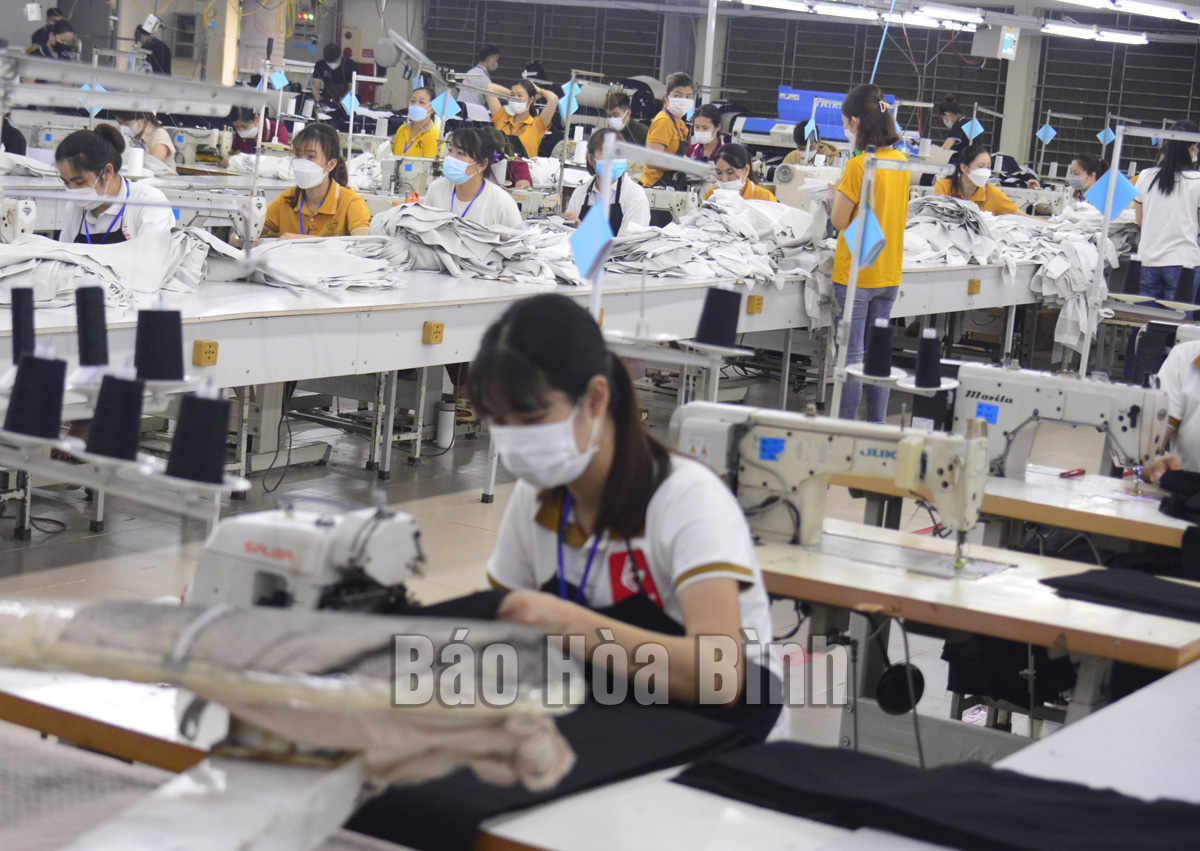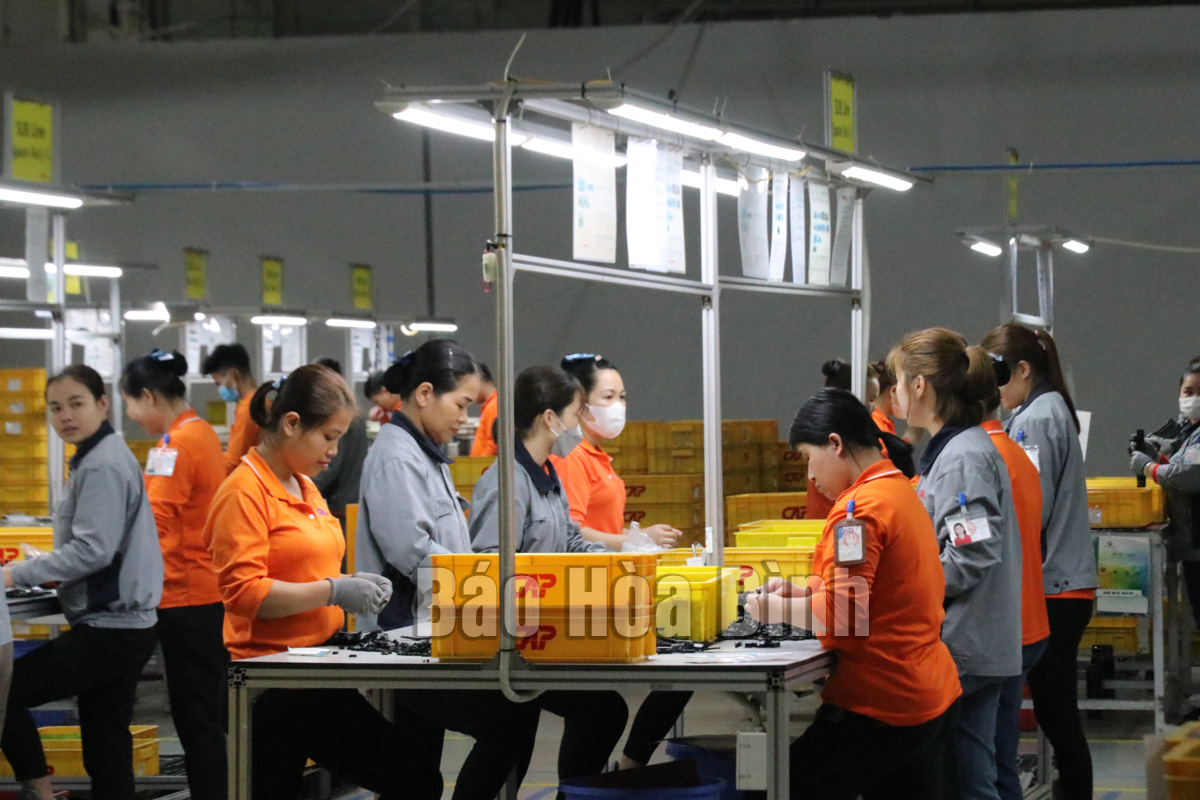
(HBO) – Hoa Binh province saw its market entry index, one of the sub-indices of the Provincial Competitiveness Index (PCI), increasing in terms of points, yet decreasing in ranking last year.
The fact requires departments and localities in Hoa Binh to
make greater efforts and take more drastic actions in order to raise the PCI,
particularly the business confidence index.

Thanks to the support from competent agencies, Cap
Global Company Limited at the Luong Son Industrial Park has been operating
fruitfully since 2020.
Last year, Hoa Binh ranked 53rd among the 63 cities and
provinces in the PCI, up nine places from 2021. The locality gained 6.49 points
in the market entry index, up 0.27 points, while its ranking in this regard
dropped one place from the previous year.
According to the provincial Department of Planning and
Investment, Hoa Binh’s market entry index, which was even lower than the
national average, was evaluated based on businesses’ dissatisfaction of some
procedures like business registration, and its publicity and transparency.
The department also pointed to limitations in the
communications work and the ability of some enterprises to carry out online
administrative procedures, as well as the lack of sense of responsibility of
officials and public servants.
Besides, agencies and businesses have not been well aware of
the 10 sub-indices of the PCI yet, leading to subjectivity in their response to
the questionnaire, it added.
To improve the market entry index, Deputy Director of the
Department of Planning and Investment Vu Duc Dung said the department has
proposed the provincial People’s Committee instruct agencies to effectively
assess administrative reform.
At the same time, it is necessary to raise the awareness of
officials and public servants about the civil service culture and step up IT
application in the administrative work, he noted.
With the solutions being rolled out concertedly, the market
entry index and other sub-indices of the PCI are expected to be improved in the
coming years, thus helping spur local socio-economic development and raise
confidence of people and businesses in local administration./.
According to data from the Hoa Binh Provincial Party Committee, the industrial production index for the first six months of 2025 is estimated to have increased by 20% compared to the same period last year. This marks the highest year-on-year growth rate for this period since 2020.
In the first six months of 2025, Hoa Binh province’s export turnover was estimated at 1.145 billion USD, marking an 18.11% increase compared to the same period in 2024. Import turnover was estimated at $ 804 million, a 17.15% increase, which helped the province maintain a positive trade balance.
The lives of the ethnic minority farmers in Tan Lac district have gradually improved thanks to the new directions in agricultural production. This is a testament to the collective strength fostered through the professional associations and groups implemented by various levels of the district’s Farmers’ Union.
With the motto the "product quality comes first,” after nearly one year of establishment and operation, Muong village’s Clean Food Agricultural and Commercial Cooperative, located in Cau Hamlet, Hung Son Commune (Kim Boi district), has launched reputable, high-quality agricultural products to the market that are well-received by consumers. The products such as Muong village’s pork sausage, salt-cured chicken, and salt-cured pork hocks have gradually carved out a place in the market and they are on the path to obtaining the OCOP certification.
In the past, the phrase "bumper harvest, rock-bottom prices" was a familiar refrain for Vietnamese farmers engaged in fragmented, small-scale agriculture. But today, a new spirit is emerging across rural areas of Hoa Binh province - one of collaboration, organisation, and collective economic models that provide a stable foundation for production.
Maintaining growing area codes and packing facility codes in accordance with regulations is a mandatory requirement for agricultural products to be eligible for export. Recently, the Department of Agriculture and Environment of Hoa Binh province has intensified technical supervision of designated farming areas and packing facilities to safeguard the "green passport" that enables its products to access international markets.



